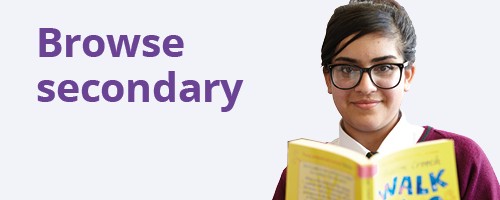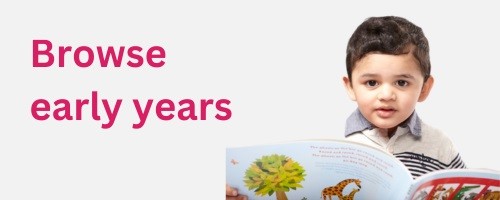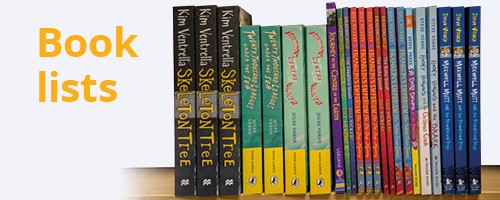Schools please note: due to the summer holidays we will automatically hold all school books and furniture orders due between Wednesday 16 July and Monday 1 September 2025. Delivery will resume from Tuesday 2 September 2025. If your school remains open for deliveries during the summer and you would like to receive your order during this time, please get in touch in advance by calling 0121 666 6646 or emailing hello@peters.co.uk.
For help, advice and telephone ordering call our team on 0121 666 6646
Are you sure you wish to delete this basket?()
This action cannot be undone.
Sorry, something went wrong
Please report the problem here.
Decolonising the curriculum - Oshun Education Q&A

September 17th 2020
Karen Brooke is a qualified trainer with specialisms in Black British History, School Curriculum Decolonisation, Black British Culture and Cultural Identity. Her background is in education, designing and delivering bespoke courses, and she is well-known across the prison service for her unique Black Self Development Programme. Having worked in a variety of educational settings, including primary and secondary schools, Pupil Referral Units and within the community, she is currently focusing her work around decolonising the school curriculum in the UK. We spoke to Karen to find out more.
Q: Oshun Education’s mission is to support schools with the decolonisation of their curriculum. Can you tell us a bit more about what is meant by this, and the impact it has on pupils in the schools you’ve worked with?
‘Decolonisation’ is a nuanced, layered concept that has recently been interpreted in many different ways by different institutions and individuals. Many teachers confuse it with diversification/representation – which can result in tokenism, or worse, a re-write of historical events – or they think that the process of decolonisation only applies to the subject of history. Many teachers do not know what Black History actually is – I went to school and university in England and left without being taught any Black history.
To summarise, decolonisation is about challenging and changing a Eurocentric curriculum which does not recognise the heritage, achievements and history of African and Asian people, and tells a partial and inaccurate account of British history. The impact of a decolonised curriculum and staff training on children is that they become more enthusiastic about learning, because what they are learning is relatable and relevant to their lives. It provides them with the knowledge and skills to be courageously conversant and to challenge and critique information given to them, thus giving them a sense of empowerment and confidence in their cultural identity. Decolonising the curriculum bridges the attainment gap, as it allows children from ethnic minority backgrounds to acknowledge their part in history and challenges previous negative perceptions of their backgrounds.
As a means of avoiding future generations of racism, it is imperative that White children are exposed to a decolonised curriculum so that they have a more realistic view of their place in the world and have knowledge of everybody’s contributions to Britain and the world's development. Challenging traditional perceptions of the UK’s history and prominence will help them to understand the importance of equality and diversity and eradicate racism and prejudice in the future.
Q: How did you come to set up Oshun Education? What influenced you?
My core background is in education, designing and delivering bespoke accredited courses and I am well known across the prison service for delivering a unique Black Self Development Programme to Black prisoners.
My interest in Black British History grew from a confusion throughout school when presented with the African American Civil Rights Movement and Enslavement as a definition of Black History. I was fortunate that my parents sent me to a Saturday School that supplemented my Eurocentric education. I learned that there were Black Roman Emperors (Septimius Severus), and one of the most overlooked facts in British history telling is that the Ancient Egyptians were Black Africans.
I set up Oshun Education in response to the Black men I taught in prison, many of whom said that if Black history had been taught at school they would have felt part of British society and may not have ended up in prison. Oshun Education is my way of attempting to reduce the number of wasted lives spent in prisons in the future, helping the next generation to be better informed about their history, with enhanced social justice for everyone as a result.
Q: Tell us about some of the support you offer to schools – what training and services are available?
Oshun Education offers training to schools around exploring decolonisation and auditing their curriculums, either to validate revisions already carried out or making recommendations for change. We deliver sessions around Black British history, how to teach ancient Black History e.g. Benin, and localised Black history. A large portion of the training I deliver is bespoke to the school's individual needs.
Books are a key part of the work we carry out; we audit the books used as core texts in school, as well as the selection of books made available to children to read in the classroom. Unfortunately, this is an area in which I often see examples of ‘representation’ – tokenism. Ideally there should be a balance of female and male authors and authors with cultural backgrounds that reflect the characters in the stories. In addition, stories set in Africa should always highlight a specific African country as we would expect when being presented with stories set in Europe.
Q: You help schools to ensure their library books are reflective of British society and the children within the school. How important are books and reading for children in terms of seeing their own identity reflected in what they read?
It is important for children to see images of people that look like themselves reflected in the stories they read – it is a way of validating their existence and a reminder that they matter and have a place in society. The books all children read should include ethnically diverse characters. Books written by Black/Brown authors have the advantage of authentically portraying aspects of non-White children’s culture, family relationships and home life accurately, which increases the self-esteem of the child.
Q: Events around the world in 2020 have led to increased awareness of the issues surrounding the Black Lives Matter campaign and Black history. Many are now campaigning for the government to include Britain’s colonial past as part of the UK’s compulsory curriculum. How have schools been responding to this?
The inclusion of Britain’s colonial past is already within the National Curriculum at both primary and secondary. However interpreting the curriculum objectives has been a challenge for most schools, as some are ambiguous. And the issue is the lack of resources (or limited and biased resources) available to support teaching, along with teachers' lack of knowledge of Black British history and ancient Black history.
So many schools have responded positively and are keen to start the process of scrutinising their curriculums, seeking training for staff to help increase their knowledge around Black history. More importantly they are enquiring about training to facilitate inward reflection on their own views and attitudes and interpretation of world history, and examining the potential negative impact they may have on non-White children in their classrooms.
Schools are also beginning to see the positive impact decolonisation has on the children’s ability to critically reflect on history and the media and form their own opinions. Many have found it empowering. In August 2020, the first school whose curriculum Oshun Education decolonised, Three Bridges Primary School in Southall, London, won first prize in the Accord Inclusivity Award. Judges included the Chair of the Equality and Human Rights Commission. The school was praised for taking ‘bold steps’ to reduce the ‘heavy white and Western bias across its curriculum.
Q: If a school is interested, how should they get in touch?
Please contact me via my website www.oshuneducation.co.uk , email karen@oshuneudcation.co.uk , Twitter @KarenBrooke12 or phone 07958 693320









